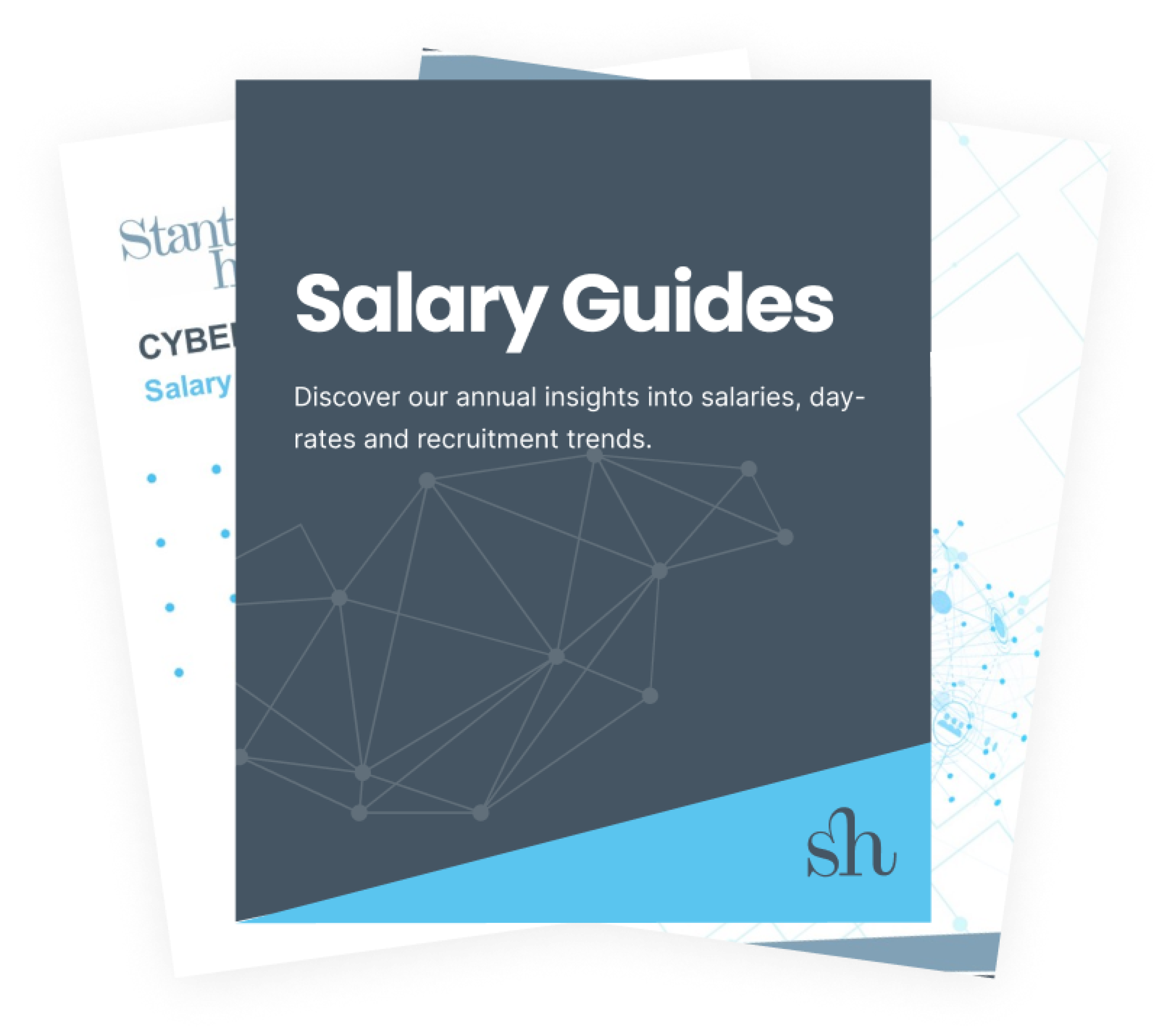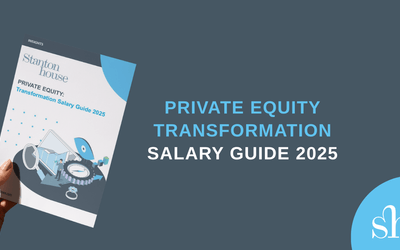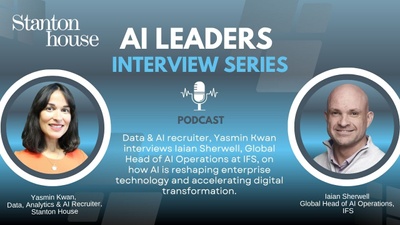
AI in Job Hunting: Empowering Your Search Without Losing Your Voice
The way we search for jobs has evolved rapidly. Artificial Intelligence (AI), particularly in the form of Large Language Models (LLMs) like ChatGPT, now plays a growing role in how candidates explore opportunities, write CVs, and connect with employers. These tools offer convenience and support, but they can also create challenges if used without care. At Stanton House, we are passionate about creating exceptional customer experiences. Our aim is to help job seekers use AI tools effectively to enhance their job search without losing the personal, human qualities that make each candidate unique.
The Rise of AI in Job Searching: LLMs as Personal Career Assistants
AI tools have become more than just search engines; they are now personal career assistants. Job seekers are increasingly turning to LLMs to:
-
Seek tailored advice on career paths and industry trends
-
Search for roles, companies, and agencies in their desired area of work
-
Generate customised CVs and cover letters tailored to specific applications
-
Prepare for interviews with role-specific questions
A recent survey showed that over 75% of job seekers have used AI tools during their job applications (Forbes). This shift reflects a growing desire for efficient, more personalised job search strategies.
AI-Generated CVs and Outreach Messages: Balancing Efficiency and Authenticity
The Benefits
-
Time-Saving: AI tools can quickly generate well-structured CVs and cover letters, reducing the time spent on routine tasks.
-
Customisation: AI helps tailor applications to specific roles by analysing job descriptions and aligning your CV accordingly.
-
Accessibility: These tools support non-native speakers or those less confident in professional writing, making applications more accessible.
-
Overcoming Writer's Block: AI can suggest phrasing and structure, helping candidates get started and stay organised.
-
Enhanced Language and Tone: AI can refine grammar and style, making documents more polished and professional.
The Risks
-
Generic Content: Overuse can result in impersonal applications that fail to stand out, especially if only basic data is provided.
-
Inaccuracies and Misrepresentations: AI may include incorrect or exaggerated information if not carefully reviewed.
-
Perception by Recruiters: 80% of hiring managers are sceptical of AI-generated CVs, finding them impersonal (Forbes).
-
Loss of Personal Voice: AI might miss the nuances of your unique experiences, leading to a lack of authenticity.
-
Dependence on AI: Relying too heavily on AI can weaken your ability to communicate your own story effectively.
Responsible Use of AI in Your Job Search
AI is most powerful when used as a support tool, not a replacement for your own judgement. Here's how to use AI responsibly:
-
Review and Personalise: AI can’t capture your personal story. Always adapt and refine content to reflect your experiences, motivations, and voice.
-
Check for Accuracy: AI tools can generate errors. Verify all job titles, dates, skills, and achievements.
-
Maintain Integrity: Avoid embellishing your experience. Anything you include should be something you can confidently discuss in an interview.
-
Understand Context: AI doesn’t know the specifics of each role. Tailor every application to align with the company’s values and the hiring manager’s expectations.
-
Use AI for Growth: Leverage AI to research skills, practise interview responses, and explore industry trends, but let your human insight guide the way.
The Recruiter’s Perspective: What Candidates Are Saying About AI
As recruiters increasingly adopt AI to streamline tasks like note-taking and job description drafting, we wanted to understand how candidates feel about AI in their own job search.
After speaking with several professionals, particularly in the interim market, our team noticed a clear trend: many candidates are still hesitant to rely heavily on AI tools for CV creation or application support. Experienced interims, for example, expressed confidence in crafting their own CVs without external assistance. Some early-career candidates were more open to using AI, especially for formatting help or to improve grammar and structure.
Others voiced concerns about privacy, particularly when uploading personal details into tools like ChatGPT. The uncertainty around how data is stored and shared was a key factor in their reluctance.
That said, some candidates do use AI to tailor their experience to specific job requirements or to research a company more efficiently. In these cases, AI is viewed as a helpful aid, not a replacement for personal judgement.
"I mostly use AI to research the companies I’m applying to or to help reword parts of my CV for clarity. It’s like having a second pair of eyes when you’re in a rush. I wouldn’t use it to write a CV from scratch, but it’s useful for making tweaks and checking alignment with a job spec. Sometimes it just helps to get over that initial hurdle when you're staring at a blank page." – Senior Transformation Candidate
The Enduring Value of the Recruiter
At Stanton House, we embrace AI as a tool that supports our consultants to work more efficiently. Tasks like data entry and meeting transcription are handled by technology, freeing up time to focus on what truly matters: people.
However, technology can never replicate the human aspects of recruitment. Our consultants build meaningful relationships with both clients and candidates, offering insights that go far beyond keywords or algorithms.
We provide:
-
Access to roles that aren't publicly advertised through our trusted networks
-
Strategic CV guidance tailored to specific hiring managers
-
Deep understanding of company culture, team dynamics, and hiring priorities
-
Interview preparation that includes real-world feedback and confidence-building
-
Ongoing career support that extends well beyond a single placement
AI may enhance how job seekers navigate the market, but it's experienced recruiters who provide the direction and partnership needed to make informed decisions. At Stanton House, we use AI to enhance the human experience, not replace it. We believe recruitment is about people, and we are here to support you with integrity, insight, and care at every stage of your journey.
Embracing AI with Care and Confidence
AI offers many benefits for job seekers looking to manage their search more efficiently. But the true power lies in combining AI’s capabilities with personal experience and human insight. At Stanton House, we are here to help you strike the right balance, making your job search both smarter and more human.


















